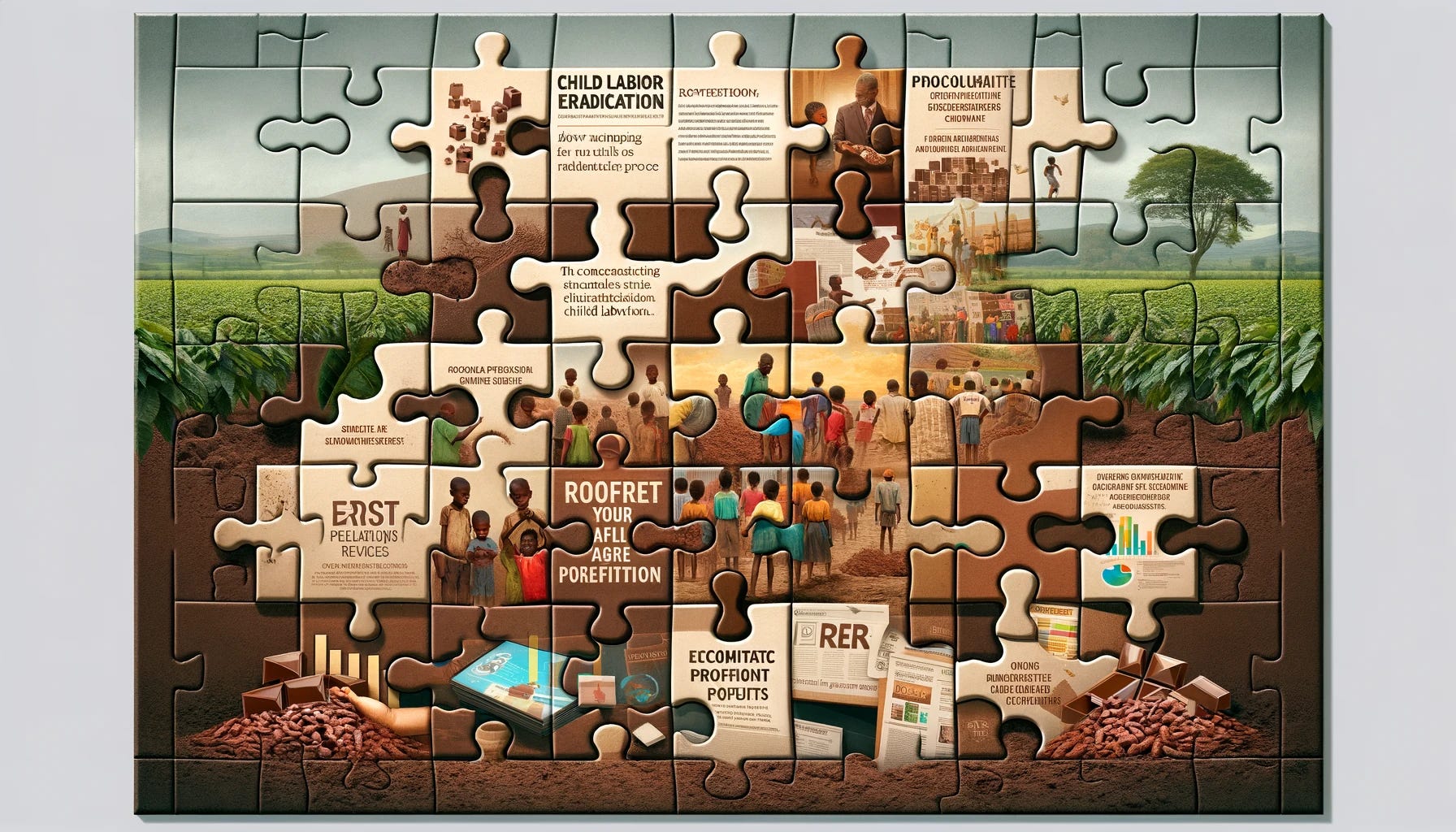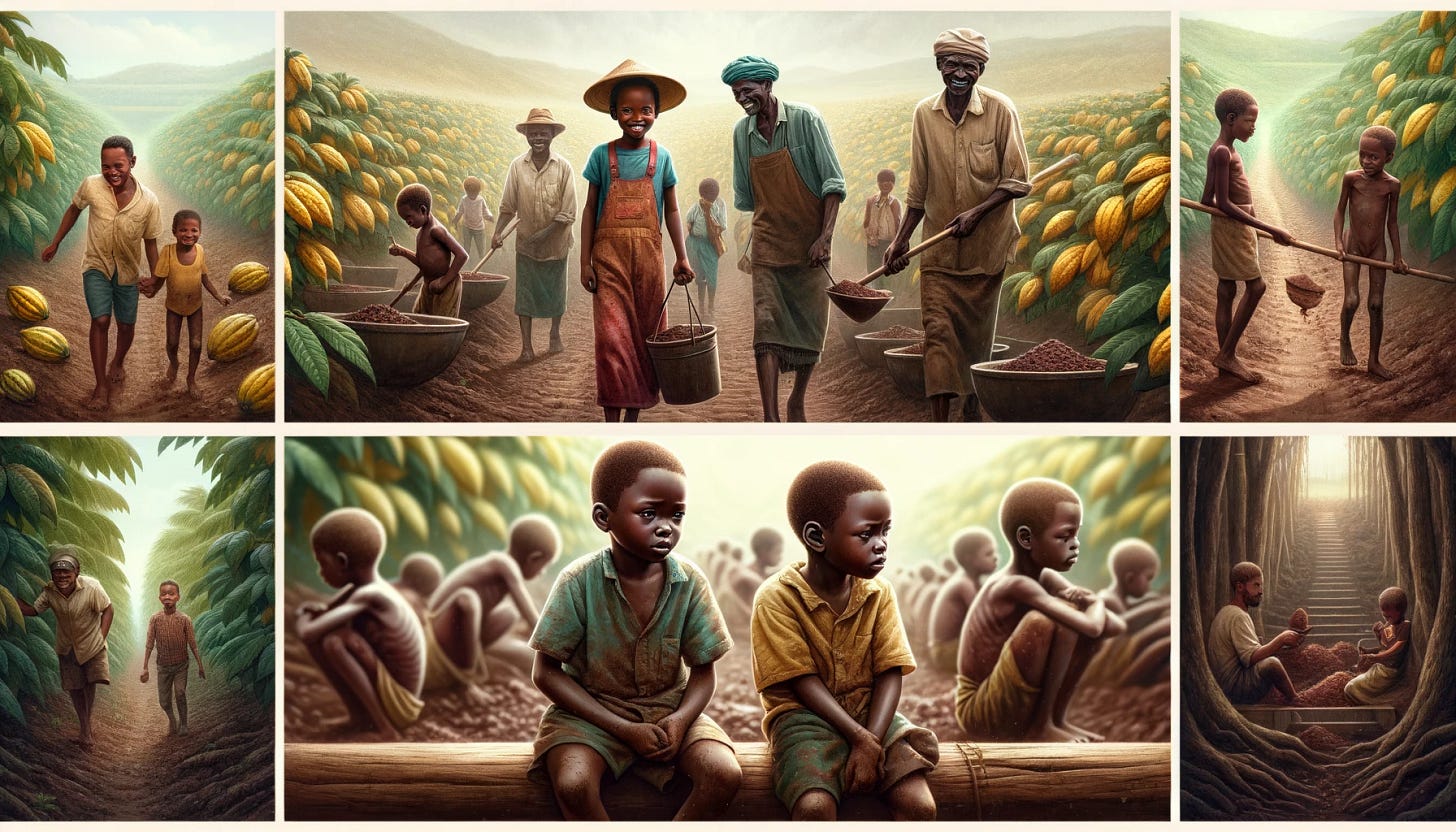Child Labour Eradication as the Chocolatiers' Current CSR Bandwagon: Genuine Efforts or Marketing Strategy?
Tony's Chocolonely: Ethical Crusader or Smart Marketer?

In the complex montage of the cocoa industry, child labour remains a persistent shadow, veiled under the facade of Corporate Social Responsibility. As chocolatiers like Tony's Chocolonely navigate this complex terrain, their actions alternate between the puzzle of genuine concern and or strategic branding. This landscape, where traditional family labour intertwines with exploitation and necessity, demands more than superficial remedies. For true change, we must transcend cultural misconceptions and confront the harsh realities of poverty, lack of education, and economic disparity. Only then can we untangle the knot of child labour, transforming well-intended initiatives into impactful, lasting solutions that reach beyond mere profit and image enhancement." - Kwame Asamoah Kwarteng
Corporate Social Responsibility (CSR) has become a buzzword, often used to enhance brand image. But when it comes to child labour in the cocoa industry, are companies like Tony's Chocolonely genuinely invested in change, or is it a strategic move to capture a market of ethically conscious consumers?
Quote: "The business of business should not be about money. It should be about responsibility. It should be about public good, not private greed." - Anita Roddick
This quote calls for a reevaluation of business motives. Tony's Chocolonely's efforts, while notable, must be scrutinized to ensure they are not just another cog in the CSR marketing machine.
Example: A chocolate company that uses CSR as a marketing tool might highlight their "slave-free" chocolate. However, if their supply chain practices do not align with these claims, or if they fail to invest in the producing countries' economies, their CSR efforts could be seen as superficial.
The Rise of CSR in the Cocoa Industry
In recent years, the cocoa industry has witnessed a significant shift towards ethical practices. This change is driven largely by increasing awareness of child labour issues. Reports highlighting the conditions of children in cocoa farms, especially in West Africa, have spurred chocolatiers to action. Among them, Tony's Chocolonely has emerged as a notable player, championing the cause of ethical cocoa sourcing.
Quote: "The best way to find yourself is to lose yourself in the service of others." - Mahatma Gandhi
This quote underscores the essence of genuine CSR – it's not just about brand image but truly serving and making a difference. While Tony's Chocolonely's efforts are commendable, it's essential to understand the broader context. Are these initiatives a genuine attempt to bring about change, or are they merely a marketing strategy?
Example: Consider the case of a popular beverage company that launched a campaign to provide clean drinking water in Africa. While the initiative was well-received, it later emerged that the company's operations in the region were depleting local water sources. This dichotomy between CSR initiatives and actual business practices is not uncommon.
The Complexity of Child Labour
Child labour in the cocoa industry is not a straightforward issue. Deeply intertwined with socio-economic and cultural factors, it presents a challenge that goes beyond mere surface-level solutions. In many cocoa-producing regions, children assisting on farms is a long-standing tradition. However, this practice, when viewed through the lens of Western standards, is often misconstrued as exploitative child labour. Economic hardships and limited access to education further compound the problem.

Quote: "Child labour perpetuates poverty, unemployment, illiteracy, population growth, and other social problems." - Kailash Satyarthi
Tony Chocolonely's efforts stand out in this complex landscape. By acknowledging these complexities and striving to address them, they set themselves apart from many in the industry. But the question remains: is it enough?
Example: In many parts of Africa, children assisting their parents in farming is a rite of passage, a way to learn the family trade. But when these practices are viewed from a Western perspective, they're often labelled as child exploitation, without understanding the cultural context.
The Realities of Cocoa Farming
Farmers in cocoa-producing countries face a myriad of challenges. Contrary to popular belief, these farmers aren't intentionally sending their children to work on farms out of malice. If given a choice, wouldn't they prefer to send their children to elite schools or engage them in extracurricular activities like violin lessons?
Keep reading with a 7-day free trial
Subscribe to Cocoa Diaries Newsletter to keep reading this post and get 7 days of free access to the full post archives.



